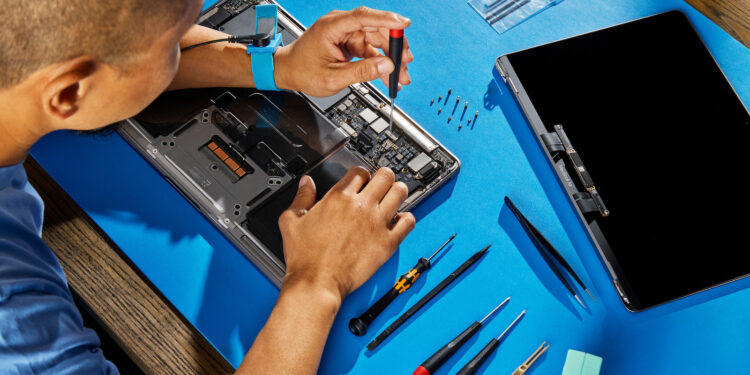At a time when sustainability and consumer rights are becoming increasingly important, the European Union (EU) has passed a new law that has a significant impact on consumer electronics manufacturers, especially giants like Apple. This law requires manufacturers to extend their warranty terms and facilitate access to repairs and spare parts.
Apple, a company known for its strict controls on repairs and spare parts, now faces the challenge of revising its policy in line with the new EU requirements. This development could bring about a significant change in consumer behavior and the economic viability of Apple products.
The basics of the new EU law
Since 2020, the EU has been intensively discussing the right to repair, and recently the law was passed with an overwhelming majority. The law not only extends warranty periods but also makes spare parts and tools more accessible and affordable.
extended warranty and access to repairs
Under the new law, the warranty period is extended by an additional year if the consumer decides to have the product repaired. This applies even after the original manufacturer's warranty has expired. Manufacturers such as Apple must now enable repairs even after the warranty period and provide the necessary spare parts and tools.
No restrictions on repairs
The EU presents It is clear that manufacturers cannot use contract clauses, hardware or software to hinder repairs. This also means that independent repair companies should have the option to use used or 3D printed parts.
Further consumer rights
In addition to extended warranties and repair options, the law requires consumers to be offered a replacement part if repair is not possible and a loaner device option should be available during the repair period. Neither Apple's standard warranty nor the AppleCare+ insurance program currently offer this.
Apple's reaction and adjustments
Although Apple has already introduced a self-service repair program in Europe that allows users to carry out repairs themselves, the details of the new requirements are still unclear. The exact conditions under which repairs must be offered and what counts as "reasonable costs" still need to be defined and implemented by each EU member state.
The impact of EU repair laws on companies like Apple
The new EU repair laws are a significant step towards a more sustainable and consumer-friendly electronics industry. For companies like Apple, this means adapting their previous practices, which could lead to a changed relationship between consumers and manufacturers in the long term. This could be a precursor for similar laws worldwide and sends a strong signal for protecting consumer rights and promoting sustainability. The implementation of these laws will change the landscape of electronics repairs and could usher in an era of "repair culture" that reaches far beyond the EU. Apple and other tech giants will have to adapt, which will ultimately lead to a more responsible industry. (Image: Apple)





